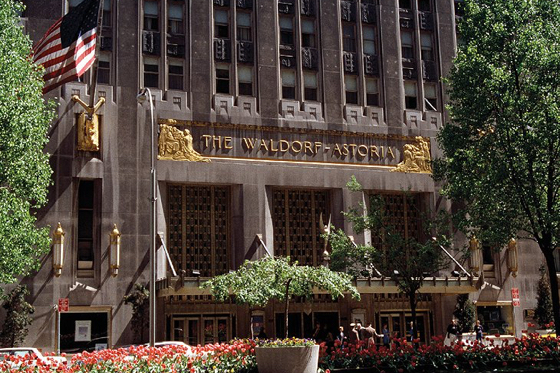
Mixed messages about the state of outbound investment by bigger and busiest Chinese investors continue.
On one hand, Chinese financial regulators are now denying reports that they would further discourage and scrutinize overseas acquisitions by some of the country’s biggest asset buyers, including Anbang, Dalian Wanda Group, Fosun Group and HNA Group, according to a new report in the South China Morning Post.
At the same time, Reuters reported on Friday that China plans to further restrict overseas acquisitions by Chinese companies and borrowing to fund those transactions, and that The National Development and Reform Commission (NDRC) and the Ministry of Commerce (MOFCOM) have started to closely scrutinize the commercial aspects of the deals.
In the first instance, the China Insurance Regulatory Commission (CIRC) on Thursday denied a recent Bloomberg report that it had pressed Anbang Group to sell offshore assets, including New York’s Waldorf Astoria hotel, to repatriate the proceeds.
A day earlier, the State Administration of Foreign Exchange (SAFE) said that it actively supports banks and companies engaged in “real and compliant” businesses to use their onshore assets as collateral for offshore loans, again rebutting a Bloomberg report that quoted sources saying SAFE was scrutinizing the borrowing practice.
These latest moves apparently were made to avoid market panic in China and to make sure asset owned by these outbound investors don’t collapse, which would mean the sellers would only be able to bring back much smaller returns to the country.
China’s largest offshore asset buyers have acquired a combined US$10 billion of syndicated loans and bonds that will mature by 2019, according to Bloomberg, which is raising concerns among policymakers about the exposure by Chinese banks to over leveraged debt, especially for the Communist Party’s leadership ahead of their party elections in autumn.
Wanda and Fosun have already declared that their business focus would shift to their home market and this new prognostication by currency regulators may help calm the market.
In news that seems to contradict efforts to discourage and scrutinize overseas acquisitions, sources told Reuters that the two bodies, NDRC and MOFCOM, are asking companies looking to buy assets overseas to justify terms, including target valuations, deal premiums and financing arrangements. This was particularly the case with companies not seen by the Chinese government as “strategic,” they said.

